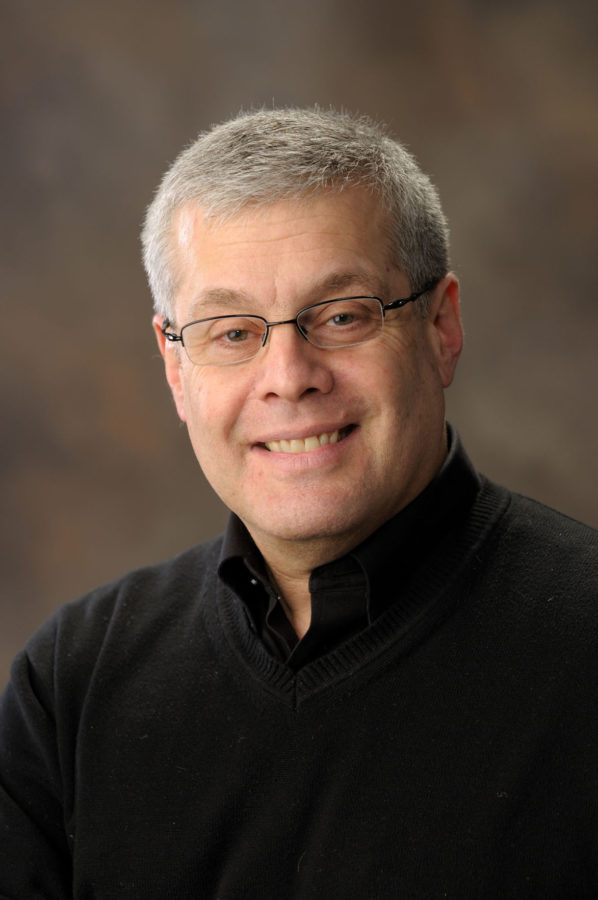The Goldberg Effect
Apr 8, 2015
What started off as a transformation toward engineering education turned into a movement. Former engineering professor and co-founder of iFoundry at the University, Dr. David E. Goldberg, has continued to inspire more than engineering students at the University.
In October, Goldberg published a book titled, “A Whole New Engineer.” The book captures Goldberg’s experience in engineering at the University and co-author Mark Somerville’s experiences at Olin College and share their stories ollege of Engineering in Needham, Massachusetts.
To put the two colleges into perspective, Olin College is a private school with an undergraduate enrollment of 335, according to U.S. News. Whereas the University has an undergraduate enrollment of in its College of Engineering of 6,950. When examining the enrollment numbers, Goldberg said it’s easy to see that the schools are on completely different scales.
“But what we were finding — (when) working together — were the similarities and how education needed to change,” Goldberg said.
But Goldberg explained that this book was just one step in his movement: unleashing young people’s minds.
Get The Daily Illini in your inbox!
He said he was originally inspired to start the movement when he helped cofound the Illinois Foundry for Innovation in Engineering Education, or iFoundry, in 2007, with Andreas Cangellaris, the Dean of the College of Engineering.
According to Goldberg and Cangellaris, iFoundry is a pilot program working toward changing the education and student experiences of the University’s undergraduates to better prepare students for the challenges they may face in the 21st century.
“We realized many students came here with a passion of what they wanted to do,” Cangellaris said. “We wanted to make sure that as they go through what is a very demanding curriculum that the passion is sustained within their four years here at Illinois.”
In 2009, Goldberg said 73 freshman were admitted to the first iFoundry class. On the first day of class, he said he started off with a simple question, “Why do you want to be an engineer?”
Some students said they wanted to be the next Max Levchin, co-founder of PayPal and 1997 University graduate. Some said they wanted to help people around the world like the Engineers without Borders organization does, while others said they just wanted to create cool technology. After hearing the answers, Goldberg told the students, “Okay, go build something.”
Goldberg said the students were confused by the simplicity of the instructions. The students weren’t sure what that meant because all throughout high school and college they’ve been conditioned to do what they’re told, he said. So the students asked, “Well, what do you want us to do?” Goldberg’s reply established his expectations.
“You want to be a great entrepreneur, then go build something. You want to save the world, start saving,” Goldberg said. “You tell us what you’re going to do.”
Athena Lin, sophomore in engineering, said she is inspired by Goldberg’s work.
Lin said her freshman year in engineering was different from what she expected. Dissatisfied, she decided to research the methodology of engineering education when she came across Goldberg’s work.
“He had the answers to my questions, and some of the things he said really resonated with me, so I contacted him,” Lin said.
After discussions with Goldberg, Lin was given the opportunity to work with him in promoting engineering education with another program called Students for a Whole New Education.
According to Lin, Students for a Whole New Education is a group where students can share their stories, reflect on higher education on an international level and advocate for change. Currently, there are 12 current students from different parts of the world, including Canada, South America and Europe. Lin said Students for a Whole New Education has been able to identify differences and similarities in engineering education through an international network.
“It’s been really interesting to be able to realize that even though we are at different institutions around the world the struggles we face are very similar,” Lin said.
Goldberg said the type of education today is similar to the strict and hierarchical education of the ‘50s and ‘60s.
“In the olden days, the big companies wanted young people to shut up, sit down and do what they’re told,” Goldberg said. “It was about being obedient.”
But now the world is looking for the next Steve Jobs, he said.
“How was it possible to get so much motivation, excitement, passion and student unleashing with so little faculty input and so little money spent?” he said. “Fundamentally we have education backwards. We think it’s about the professor and what he or she teaches in the classroom, but it’s really what the student does that makes an education an education.”






